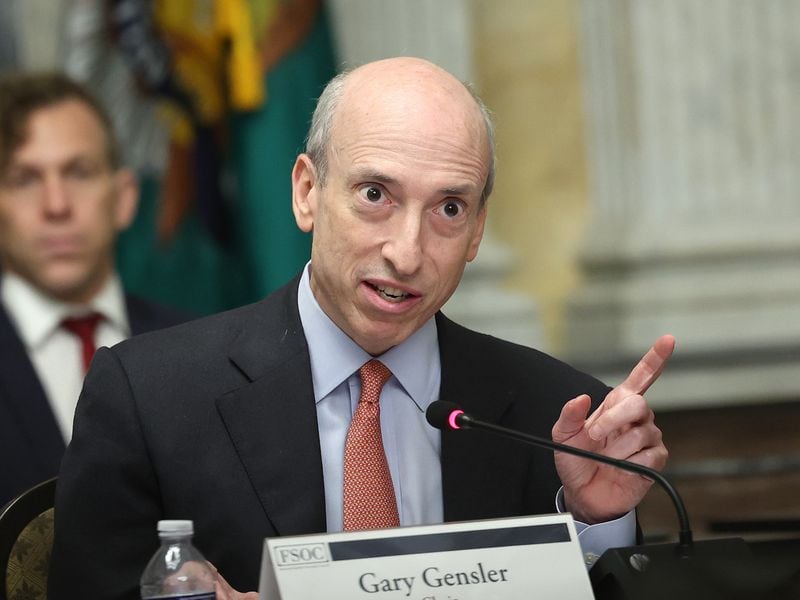
Gary Gensler is stepping down. And no one in crypto is going to miss the SEC chair. Under his tenure, the lead U.S. securities regulator led a wide-ranging campaign against digital assets companies that was both damaging and frequently unfair. Meanwhile, Gensler offered no clarity to crypto companies wanting to do business the right way. At times, it seemed that Gary, along with his ally, Senator Elizabeth Warren, simply wanted to let crypto die on the vine — such was their obvious distaste for the industry and its arguments.
Having said all this, let’s take a step back and consider Gensler’s crypto legacy in a wider context. Was the lack of regulatory support for crypto all his fault? Or, did he at times become a convenient scapegoat for problems that still exist in financial regulation?
Regulation follows legislation (or ought to) and, in Gary’s defense, he was regulating without much help from Congress. In the 16 years that bitcoin has existed, our legislators have managed to pass precisely no new laws covering digital assets. Is that Gary’s fault? No. He could have pushed more for new laws, stating why they were needed (including with his friend Warren). But he was not a sitting senator or representative and some of the same people in Washington now rejoicing Gensler’s exit are the same people who long failed the industry legislatively speaking.
Gensler’s tenure coincided with scandals that any SEC chair would have been required to deal with. FTX, an $8 billion fraud, wasn’t Gary’s fault but he was required to deal with it. It’s true that the enforcement-first policy of the SEC seemed like more of a crackdown than cleaning house. But, any SEC would have been required to clear up the law-breaking that occurred during the last market run-up. Some of the SEC’s actions were structural or situational: something anyone sitting in the hot seat would be required to sort out. And some of the enforcement actions are surely good for crypto, helping raise confidence in the sector among its many skeptics.
Most countries have a single regulator that oversees both securities (stocks and bonds) and commodities (in large part derivatives like futures and options) markets. Not the USA. Here, we have the SEC for securities and the CFTC for commodities. For crypto, that has sowed uncertainty and confusion. Some cryptocurrencies are deemed commodities (bitcoin is the most prominent example) and some — well, nearly all of them — are viewed regulatorily as commodities. The SEC and CFTC act differently. Being overseen by the SEC is generally tougher.
Gensler has certainly battled the turf war while heading both the SEC and (years ago) the CFTC, but the confusing dual-regulator system is, again, hardly his fault.
All of which is to say: Yes, Gensler has been bad for crypto. But it’s overly optimistic to believe that crypto’s regulatory problems will end just because he is heading to the exit on Jan. 20.
Note: The views expressed in this column are those of the author and do not necessarily reflect those of CoinDesk, Inc. or its owners and affiliates.
免责声明:本文章仅代表作者个人观点,不代表本平台的立场和观点。本文章仅供信息分享,不构成对任何人的任何投资建议。用户与作者之间的任何争议,与本平台无关。如网页中刊载的文章或图片涉及侵权,请提供相关的权利证明和身份证明发送邮件到support@aicoin.com,本平台相关工作人员将会进行核查。




